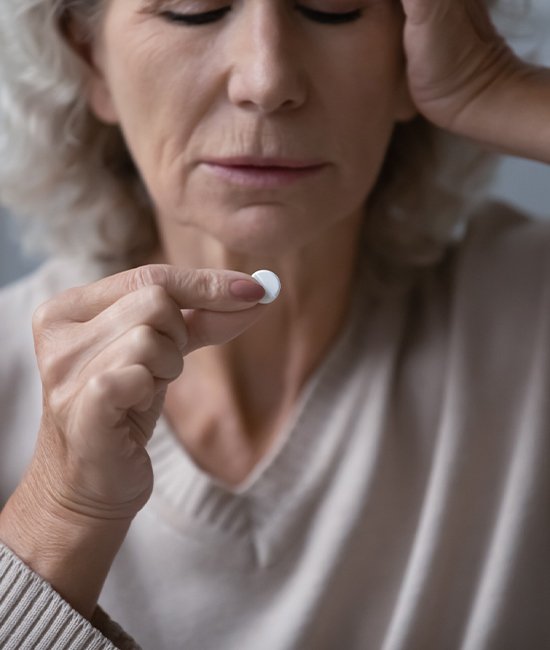Alternative Drug Options to Hormone Replacement
 There are medicines and treatment options that are alternatives to hormone replacement therapy (HRT) for managing menopausal symptoms. These alternatives can help relieve common menopausal symptoms such as hot flashes, night sweats, vaginal dryness, mood changes and sleep problems.
There are medicines and treatment options that are alternatives to hormone replacement therapy (HRT) for managing menopausal symptoms. These alternatives can help relieve common menopausal symptoms such as hot flashes, night sweats, vaginal dryness, mood changes and sleep problems.
1. Antidepressants
- Selective Serotonin Reuptake Inhibitors (SSRIs) and Serotonin-Norepinephrine Reuptake Inhibitors (SNRIs):
o Examples: Venlafaxine, fluoxetine, paroxetine, sertraline.
o Benefits: Hot flashes
2. Gabapentin
- Benefits: May be especially effective for night sweats and hot flashes.
- Usage: Often used to treat epilepsy and neuropathic pain, this drug can also be used to relieve menopausal symptoms.
3. Clonidine
- Benefits: May relieve hot flashes and night sweats.
- Usage: It is actually a drug used to treat high blood pressure, but for some women it may be effective in relieving menopausal symptoms.
4. Vaginal Estrogen
- Benefits: Relieves local symptoms such as vaginal dryness, itching and discomfort.
- Usage: It is applied in the form of vaginal tablets, creams or rings. This treatment does not contain systemic estrogen and therefore does not carry the risks of general HRT.
5. Ospemifene
- Benefits: Treats symptoms of vaginal dryness and painful intercourse (dyspareunia).
- Usage: It belongs to the class of selective estrogen receptor modulators (SERM).
What are the Natural Estrogen Supplements for Menopause?
- Black Cohosh: Some studies suggest that this herb may help relieve hot flashes and night sweats.
- Soy Isoflavones: These compounds found in soy products may relieve some menopausal symptoms due to their estrogen-like effects.
- Flaxseed: May have positive effects on hot flashes and other menopausal symptoms.
- Red Clover: Contains isoflavones and may help relieve hot flashes.
Sage Tea
Other Non-Hormonal Treatments in Menopause
- Nutrition and Exercise: A healthy diet and regular exercise can improve overall health and relieve menopausal symptoms.
- Stress Management Techniques: Yoga, meditation, deep breathing and other stress management techniques can relieve mood swings and hot flashes.
- Bio-Feedback: Monitoring and controlling body functions can help manage stress and hot flashes.
- Lifestyle Changes
- Cool Environments: Can help prevent hot flashes.
- Dressing in Layers: It makes it easier to undress when hot flushes occur.
- Healthy Sleep Patterns: Improving sleep quality by paying attention to sleep hygiene.
These treatment options may offer good alternatives for women who want to avoid the potential risks of hormone replacement therapy. However, not every treatment method may be suitable for everyone. Therefore, it is important to consult a physician to determine which treatment option is best for managing menopausal symptoms.